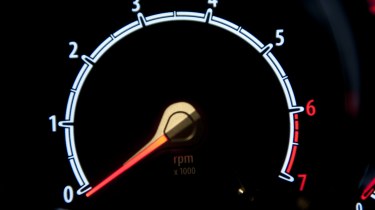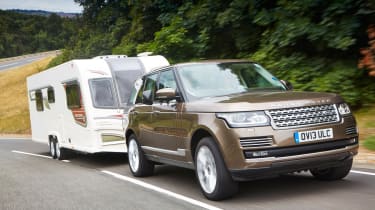What is torque?
Carmakers often quote a torque figure for their cars, but what does it mean?
Torque is an important figure used to evaluate the performance of an engine or electric motor, but it can be tricky to understand without delving into physics and mechanics. While many of us can get our heads around horsepower, miles-per-gallon and top speed, torque is arguably just as important and has a noticeable effect on the way a car drives. This guide will explain the basics of torque, so you have a better understanding when shopping for your next car.
What is torque?
Torque is a rotational or ‘twisting’ force. Think of it as the force used when rotating something around a point – for example, a wrench tightening a bolt, twisting the lid off a jar or using a screwdriver to turn a screw. Just as a linear force can move an object in a straight line, torque causes an object to rotate around a point. The greater the torque, the greater this rotational force.
This applies within an engine, with a piston applying a turning force to the crankshaft rather than your arm applying a turning force to a wrench. An engine can only produce so much torque, and this maximum figure depends on several variables. Imagine a child trying to tighten a bolt with a wrench versus a weightlifter tightening the same bolt – the latter will be able to apply a greater torque. In much the same way, a smaller engine will usually produce less torque than a larger engine, although this is not a hard and fast rule. From behind the wheel, torque is often described as a car’s ‘grunt’ or ‘oomph’.
The amount of torque an engine or motor produces varies throughout the rev range. At a particular RPM, the engine will be producing maximum torque, after which it will begin to drop off – this is why we use gears to keep an engine within its peak torque window. You can feel this sensation when pedalling on a bicycle. We’re able to apply a lot of force to the pedals at fairly low speeds but once the pedals start spinning fast, the force we can apply drops off, so we shift into a higher gear.

Torque and horsepower are closely related, as the latter describes how fast torque can be delivered. Some engines are designed to produce peak torque figures at very low RPMs, often sacrificing top-end revs (think big diesel engines), whereas others need to be revved out to higher RPMs for maximum torque.
What does that torque figure mean?
When manufacturers quote a torque figure, they’re quoting the maximum torque that an engine can produce at a particular RPM. But what does that number mean in the real world?
Generally, a car with more torque will feel quicker than a car with less torque in most driving scenarios, although weight, gearing and horsepower are all factors, too. Torque is most noticeable at lower speeds, such as when pulling away from a standstill, so more torque helps a car feel nippier off the line. This is particularly useful in a heavy car or when towing, as an engine with lots of torque will be able to get a heavy load up to speed with less effort than a low torque engine.
High torque does not necessarily mean faster, though. Engines that are designed to produce lots of low-down torque, such as big diesel engines, are great at pulling away from low speeds, but usually struggle to reach high RPMs – sacrificing peak horsepower. Conversely, a small petrol engine may lack low-down grunt, but may produce lots of horsepower once it's revved out. This is why big, heavy cars historically used big diesel engines, while lightweight sports cars used revvy petrol engines.
What about torque in electric cars?
One of the reasons why electric cars accelerate so quickly is because they produce their maximum torque almost instantly. We won’t cover the intricacies of how an electric motor works, but the main thing to know is that they don’t need to be revved out like a petrol or diesel car to produce peak torque. For this reason, cars like the Hyundai Ioniq 5 N and Porsche Taycan can out-accelerate many supercars, while even the humble MG4 feels faster than most combustion-engined hatchbacks.
Why is torque important in a car?
Torque is most important in big, heavy cars that require a large force to get them moving from a standstill. It’s not uncommon for a family SUV today to weigh two tonnes, so a decent torque figure is needed to help it feel nippy.
Until recently, diesels were the perfect choice for high-torque applications, but modern turbocharged petrol engines and electric motors can produce equally large figures. Torque is less important for some cars, such as lightweight city cars, that don’t require as large of a force to get them up to speed quickly. Many sports cars sacrifice low-down torque for high-end horsepower, making them feel more eager to rev out.

For most drivers, the ideal scenario is to have balanced performance right across the rev range. This usually means the maximum torque figure is at relatively low revs, where it’s useful at helping the car accelerate. It also gives the car more pulling power from low to mid revs. Cars with more torque are also better at towing heavy items – so if you’ve got a large caravan or regularly tow a heavy horsebox or trailer, it’s a good idea to go for a car with plenty of torque. A big, six-cylinder diesel SUV is generally a good choice.
Different measurements of torque
Your location in the world will likely differentiate the value used to measure torque. Newton metres (Nm) is commonly used in Europe by car manufacturers and by engineers and physicists using the metric system. Pounds-feet (lb/ft) is common in the USA and traditionally also in the UK, as it’s an imperial measurement.
They’re very different units, but you can convert between them like this: To convert a lb/ft figure to Nm, you need to multiply it by 1.35581794833. To do the opposite, multiply your Nm figure by 0.737562149277. Easy!
Hopefully, this guide has gone some way to clearing the murky fog that surrounds the concept of torque. To find out more about horsepower, read our article here.
Most Popular

Omoda E5 targets rivals: now with zero deposit and APR

Ford Puma Gen-E driven: Electric charmer or too little, too late?
Tips & advice

Car dashboard warning lights: what does each symbol mean?

Electric car charging stations: public networks, charger types, apps and maps







